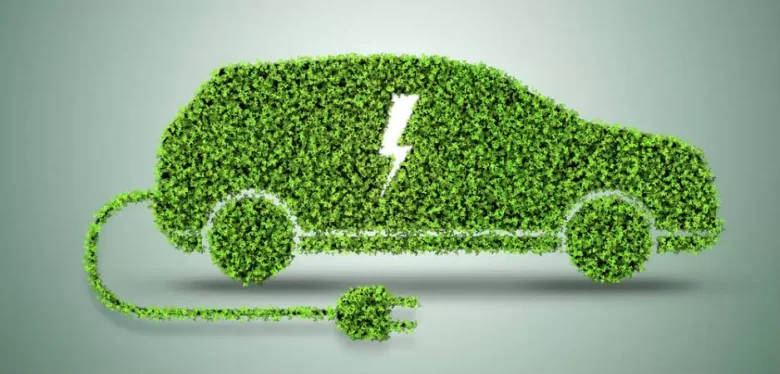In recent years, the automotive industry has undergone dramatic changes in sustainability. Electric vehicles are now the frontrunners in the quest for green transportation. As the world grapples with climate change and reducing carbon pollution, electric vehicles (EVs) have become a symbol of hope for a more sustainable future.
What Impact Do Electric Cars Have on the Environment?
One of the main reasons why electric cars are becoming increasingly popular is that they are much better for the environment than cars with a combustion engines. Older cars emit dangerous pollutants that pollute the air and contribute to climate change. Electric cars, on the other hand, do not emit any pollutants through their exhaust pipes. This helps purify the air and reduce greenhouse gas emissions.
Additionally, the process of building electric vehicles tends to leave a smaller carbon footprint, especially as improvements in battery technology have increased production efficiency. Plus, electric vehicles could be even better for the planet as the electric grid transitions to cleaner energy sources.
Save Money and Energy by Using Less Energy
There is no doubt that electric cars use less energy than regular cars. A large amount of energy from an internal combustion engine is lost in the form of heat. Electric vehicles, on the other hand, use a larger portion of electrical energy to drive the wheels. In the long run, people save money through greater efficiency, which also reduces overall energy demand.
Furthermore, the production costs of electric vehicles are slowly falling as technological advances and economies of scale take shape. Thanks to this trend, more and more people can now afford an electric car, helping to promote environmentally friendly travel options.
Government Aid and Incentives
Electric vehicles are becoming increasingly important as governments around the world work to achieve green goals. Tax breaks, rebates, and improved infrastructure are just some of the ways many countries are trying to get people to buy electric vehicles. These initiatives not only make electric vehicles more attractive to buyers but also stimulate new ideas and investments in the electric vehicle sector.
What’s the Next Step in Transportation?
New battery technology, charging stations and vehicle designs are making electric vehicles better and better, and soon they will be the rule rather than the exception. The development of electric vehicles is a turning point in the history of transportation. It marks the end of fossil fuels and the beginning of a safer, greener future.
How New Technology Brings About Change
Electric vehicle technology is changing the automotive world dramatically, and very quickly. Companies are investing heavily in research and development to make batteries more efficient, increase their driving range, and shorten charging times. These improvements not only address concerns about the usability of electric vehicles but also help the transportation industry become more environmentally friendly.
Electric vehicles are starting to come with advanced features such as regenerative braking, smart energy management systems, and ultra-lightweight materials. These new ideas not only make electric vehicles drive better, they also show that the industry is serious about reducing its impact on the planet.
Future-proof Charging Infrastructure Network
Building a robust charging infrastructure is a key part of the electric vehicle revolution. Energy companies, private companies, and governments are working together to set up charging stations across the country. This makes it easier for people to charge their electric cars. With more fast charging stations opening, electric vehicles can now be used for long-distance travel, shattering the myth of their short range.
Integrating smart technology into charging stations can make it easier to monitor energy and balance grid loads. This smart technology will not only ensure that electric vehicles become more common but will also ensure that the electricity grid remains stable and reliable.
Electric Vehicles and Employment
Switching to electric vehicles is good for the environment and helps the economy. The development of electric vehicles creates jobs in many areas, from infrastructure development to manufacturing and research. As more people buy electric vehicles, more skilled workers will be needed in areas such as battery making, software manufacturing, and green energy use.
Companies and governments realize that the green economy has the power to create more jobs. This makes electric cars even more popular. This connection between caring for the planet and making money shows the benefits of using electric vehicles.
What Role Does Consumer Awareness Play?
People need to understand the environmental and economic benefits of electric vehicles before they can be widely used. As more people understand how their transportation choices help the environment, the demand for electric vehicles is likely to increase. Sharing information about the benefits of electric vehicles through social media, online platforms, and traditional media sites is important to provide people with the information they need to make informed choices.
Conclusion
The rise of electric vehicles is not just a trend; This is a force for good that changes things for the better. Electric vehicles help create a cleaner, more energy-efficient, and more stable world for future generations. As the automotive industry joins the green revolution, electric vehicles are no longer just a way to get around; They help the world become greener, healthier, and more sustainable. We are all committed to creating a better, cleaner future, and the road ahead is filled with hope and new ideas.
FAQs
1. How do electric cars help the environment?
With no tailpipe emissions, electric vehicles help protect the environment by cleaning the air and reducing the overall carbon footprint of transportation. They are a cleaner and better for the planet alternative to traditional combustion engine cars.
2. Do electric cars save Energy?
Electric cars indeed use less energy than regular cars with a combustion engine. Electric cars use more of the energy they draw from the grid to power their wheels, meaning less energy is wasted. In addition to improving the environment, increased efficiency also saves people money.
3. What are the new developments in the science behind electric vehicles?
Electric vehicle technology is changing very quickly. Manufacturers are working to make batteries more efficient, increase their driving range, and shorten charging times. Thanks to new technologies such as regenerative braking, smart energy management systems, and lightweight materials, electric vehicles are becoming increasingly better, both in terms of operation and environmental protection.
4. How can charging systems for electric vehicles be made better?
Electric vehicle charging infrastructure is constantly evolving around the world. Governments, private companies, and energy companies are working together to build a network of charging stations. As fast charging networks expand, electric vehicles become more convenient and a good choice for long distances.
5. Would switching to electric vehicles be economically beneficial?
Yes, the switch to electric vehicles is good for the economy and creates jobs. The development of electric vehicles creates jobs in manufacturing, research, and infrastructure. Companies and governments see that the green economy creates more jobs, making buying electric cars more attractive.
6. What can people do for the environment by buying electric cars?
People can help the environment by buying electric cars, increasing the desire for cleaner ways to travel. Making more people aware of the environmental and economic benefits of electric vehicles will also help them make better choices, which will accelerate the move toward greener transportation.



